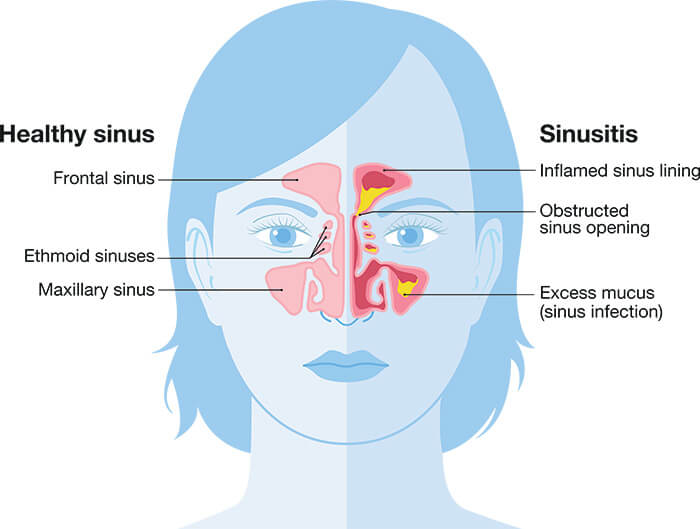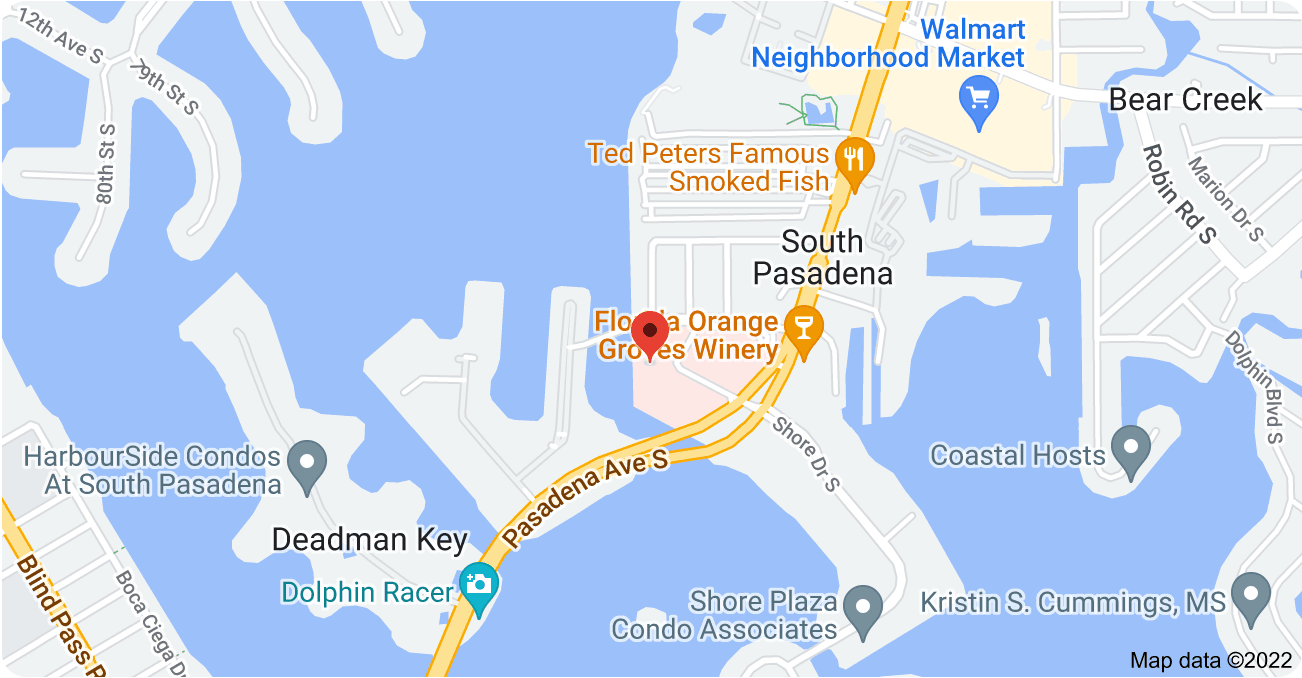Home » Our Services » Sinuses
Sinuses
What is Sinus Disease?
Sinus diseases such as acute sinusitis (sinus infection), chronic sinusitis, nasal polyps and allergic fungal sinusitis are common and can cause significant discomfort and distress. These problems are treatable and should be evaluated by an ENT Surgeon.
The nasal sinuses are cavities in the face which develop in early childhood. There are four sinuses on each side of the face – the frontal (forehead) sinus, the maxillary (cheek) sinus, the ethmoid (between the eyes) sinuses and the sphenoid (behind the eye) sinus. These sinuses serve to protect the brain from facial trauma, make the skull lighter and resonate the voice for better communication. The outflow tracts of these sinuses are quite narrow and any inflammation can cause swelling of the lining which can cause blockage and congestion of the sinuses.
Sinusitis
Sinusitis (sinus infection) is a common medical condition that occurs when the sinus cavities become inflamed or infected and do not drain properly. When the sinuses cannot drain properly they can collect mucus or fluid which creates nasal drainage as well as facial pain and pressure.
Symptoms of Sinusitis
Symptoms of sinusitis can be very distressing and uncomfortable. Recent studies have shown that sinus symptoms cause a significant worsening of a person’s quality of life and can increase the risk for depression and chronic fatigue. Symptoms of sinusitis include:
- Nasal congestion
- Nasal drainage
- Poor sense of smell
- Fever
- Facial pain or pressure
- Facial congestion or fullness
- Ear pain, pressure or fullness
- Cough
- Dental pain
- Fatigue
- Bad breath
- Headache
Causes of Sinusitis
The sinuses can become inflamed or blocked for a variety of reasons. A cold or an upper respiratory infection is the most common cause of sinusitis. Additional causes include:
- Allergies
- Nasal polyps
- A deviated nasal septum
- Blockage of the drainage pathways
- Anatomic malformations of the nose or sinuses
- Fungal infections
- Facial trauma
Individuals with immune deficiencies or those with inflammatory tendencies, such as those with asthma and allergies, are at higher risk of sinusitis.
Types of Sinusitis
Sinusitis is often categorized by the location of the inflammation and the duration of the symptoms. Sinusitis can occur in any combination of the four sinuses and can be on one side or on both sides of the nose. We also characterize sinusitis based on the length of time symptoms have been present.
- Acute sinusitis – lasts up to 4 weeks.
- Subacute sinusitis – lasts between 4 and 12 weeks.
- Chronic sinusitis – lasts more than 12 weeks.
- Recurrent sinusitis – multiple episodes which completely resolve between flare ups
Treatment for different types of sinusitis depends on the location and duration of the symptoms and treatment plans are individually tailored to each patient.
Diagnosis of Sinusitis
Sinusitis can be diagnosed with a discussion of a patient’s history and symptoms as well as a physical exam. A thorough examination of the ears, nose and throat will be performed, usually with the aid of a small camera called an endoscope. A nasal endoscopy is performed for a more detailed, deeper, and magnified examination of the nasal cavity and nasal sinuses. Sometimes nasal secretions may be sampled for laboratory culture to determine the kind of germs that caused the infection. A CT scan of the sinuses may be performed to better identify the cause of sinusitis, which sinuses are involved, and to help with surgical planning.
Treatment of Sinusitis
Sinusitis is often initially treated with medications and certain medicines may be used for maintenance therapy in patients with chronic sinusitis. Examples of potential medical treatments include:
- Decongestants such as Sudafed
- Antihistamines such as Allegra, Claritin or Zyrtec
- Nasal steroid sprays such as Flonase or Rhinocort
- Saline nasal sprays
- Saline sinus irrigations such as the NeilMed Rinse
- Medicated sinus rinses
- Antibiotics
- Oral steroids
Sinus Surgery
If the infection becomes chronic or does not respond to medical treatment then surgery may be required to improve your symptoms. Sinus surgery can be used to enlarge the sinus openings or drainage pathways in order to better drain the sinuses and relieve the pressure and pain that can build up. Once the sinuses are open we are able to more easily deliver medicine into the sinuses with nasal sprays or sinus rinses. The goal of sinus surgery is to improve chronic sinus symptoms, reduce the frequency of sinus flare-ups and reduce the severity of sinus flare-ups. CT scan navigation is often used during sinus surgery to ensure all the sinuses are adequately opened and to increase the safety of the procedure. In addition to sinus surgery, patients often also need a septoplasty or a turbinate reduction to improve nasal breathing. Most sinus surgeries are performed in a minimally invasive manner using small cameras and tiny instruments so there are no incisions on the face.
Sinus Surgery Recovery
Most sinus surgery is performed as an outpatient so you can go home the same day. Usually no cuts are made on the outside of the face and there are no changes to the appearance of the face or the nose unless they are requested. The nasal lining will swell after surgery causing some congestion for about two weeks after surgery. You may have some nasal drainage of blood or mucus the first few days after surgery. Pain is usually minimal and is controlled with oral pain medications. Antibiotics are usually prescribed to prevent any further infection and steroids may be prescribed to reduce inflammation. It takes the lining of the nose about 2 months to heal completely so you may have some occasional congestion or runny nose until your nose is completely healed. A small amount of dissolvable material may be placed high up in the sinuses but old-fashioned major nasal packing is rarely used. Nearly all patients tolerate sinus surgery very well and feel much better once they heal.
Sinus infections and sinus problems are not normal. If you are experiencing sinus problems, please call us today for a complete evaluation and a custom-tailored treatment plan. Together, we can improve your sinus health and your quality of life!





